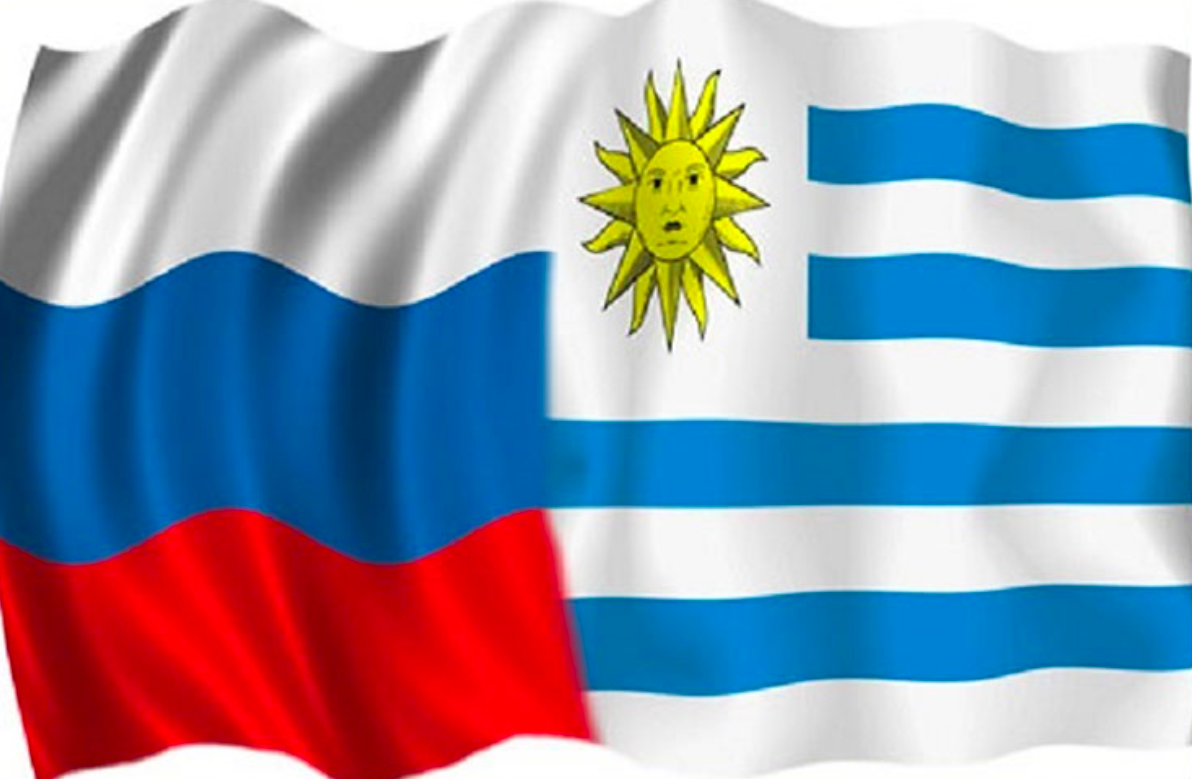Despite the current good level of relations between Russia and Uruguay, there is significant potential to develop cooperation, the Russian ambassador to the South American country, Andrei Budaev, declared in an interview with Sputnik Agency on the occasion of 165 years of bilateral ties.
“The current level of Russo-Uruguayan relations responds to the current interests and needs of both nations. At the same time, there is significant potential that can and should be used for the good of the citizens of our countries,” said the diplomat.
In Budaev’s opinion, the anniversary, which is celebrated this Saturday, “should promote the further development and strengthening of the entire set of bilateral ties, which are characterized by long traditions of mutually beneficial cooperation.”

The ambassador emphasized that, despite the ups and downs in the history of Russian-Uruguayan relations – which were even suspended on two occasions, 1917 and 1935 – the two peoples always had mutual “benevolence and sympathy”.
Bilateral cooperation, he added, is based on compliance with the principles of equality, mutual respect and benefit, and non-interference in the internal affairs of the other country.
GROWING EXPORTS
Budaev also added that Russia’s exports to Uruguay increased 18.5% between January and November 2022 compared to the same period last year.
“Bilateral trade in the first 11 months of this year reached US$179.2 million. Despite the fact that there is a small reduction in trade, of 11%, it is important that Russian exports have increased by 18, 5%, up to US$114.6 million,” the diplomat noted, recalling that in 2021 Russian exports to the South American country stood at US$99.8 million.
Budaev also pointed out that for the first time in several years Russia registers a positive trade balance with US$50 million in its favor, a figure several times higher than last year.
“Russia continues to export to Uruguay mineral fertilizers [US$71.9 million], bitumen and asphalt [US$15.3 million], oil [US$15 million], inorganic chemical products [US$9.4 million]. In small quantities, it supplies organic chemical products, paper and cardboard, wool, machines and equipment,” he explained.
At the same time, the ambassador regretted that in the first 11 months of the year Uruguayan exports to Russia have been reduced by 37.8%, falling from US$103.9 to US$64.6 million.
“Russia has received Uruguayan dairy products for US$33.5 million; meat and its derivatives, for US$18.5 million; frozen fish, for US$7.5 million; animal fats, for US$2.6 million” he indicated.
He added that Uruguay also exports to Russia small amounts of fruits, nuts, animal skins, wines, textiles and medicines.
Budaev stressed that Uruguay, like many other Latin American countries, does not participate in the anti-Russian sanctions imposed by the West as a result of the Russian special operation in Ukraine and prioritizes its own pragmatic interests.
“For its part, the Russian embassy permanently provides consular and diplomatic assistance to Russian and Uruguayan economic operators to overcome difficulties in terms of logistics and financial transactions caused by illegal restrictions,” he said.
OIL SUPPLIES
The ambassador recalled that this year Russia supplied Uruguay with a first batch of its oil, worth US$15 million.
“If Uruguay is interested, Russian producers will be willing to continue with those exports,” he said.
In this sense, Budaev stressed the importance of Uruguay not joining the price cap for Russian crude “illegitimately applied by the West,” as other Latin American countries have not done either.
“According to our understanding, this makes future cooperation in that area possible,” he noted.
The Group of Seven (G7), made up of Germany, Canada, the United States, France, the United Kingdom, Italy and Japan, as well as the European Union and Australia, refused to purchase Russian oil at a price higher than US$60 per barrel. starting December 5th.
The cap prohibits companies from these countries from providing services and shipments, such as insurance, brokerage and financial assistance, necessary to transport Russian oil anywhere in the world, unless the crude sells below the agreed threshold.
Russia made it clear that it will not accept this cap and assured that its oil will continue to be in demand in international markets.
CASE OF ALEJANDRO ASTESIANO
The case of the former head of Uruguayan presidential custody, Alejandro Astesiano, accused of forging passports for foreigners, including Russians, and committing other crimes, is a good reason to increase bilateral cooperation on police and judicial issues and, possibly, sign an agreement on legal assistance, considers Budaev.
“What happened is a good reason to think about the need for further development of mutually useful cooperation between the police and judicial authorities of our countries, including an update of the legal and documentary framework, for example, through the signing of a agreement on mutual legal assistance in criminal cases,” he said.
He assured that he does not believe that “this unfortunate episode [Astesiano case] could affect the friendly relations” that both countries have had for many years. The ambassador also warned that it will be possible to draw conclusions only after the judicial investigation of the case ends.
Budaev said that lately the embassy has not received complaints from Russian citizens in Uruguay due to difficulties with document processing.
“Consular employees of our diplomatic mission constantly provide assistance to Russian citizens who come to the embassy for various issues,” he noted.
On September 27, the Uruguayan Justice ordered preventive detention for Astesiano, accused of criminal association, influence peddling and assumption of marital status.
The President of Uruguay, Luis Lacalle Pou, dismissed his security chief from his position after the courts charged him with these three crimes.
The former official is being investigated for his alleged participation in a criminal organization that forges Uruguayan passports to sell them to foreign citizens, including Russians.
The Prosecutor’s Office maintains that Astesiano used the Executive Tower (headquarters of Government) for his illegal business.
With information from Sputnik

